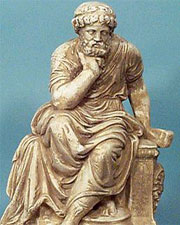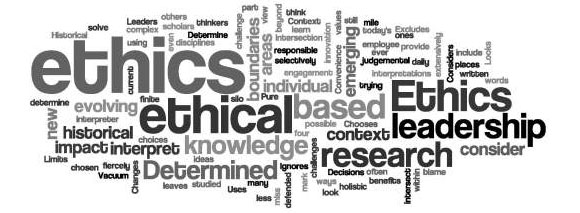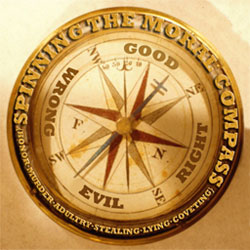
Socrates
The issue is an old one. Almost 2500 years ago, the philosopher Socrates debated the question with his fellow Athenians.
Socrates’ position was clear: Ethics consists of knowing what we ought to do, and such knowledge can be taught.
What I’d like to do is teach you a systematic approach to everyday ethics and it is grounded in five questions.
I recommend that you ask yourself these five questions at the end of each day as they will help you to practice everyday morality.
1. Did I practice any virtues today?
In The Book of Virtues, William Bennett notes that virtues are “habits of the heart” we learn through models–the loving parent or aunt, the demanding teacher, the respectful manager, the honest shopkeeper. They are the best parts of ourselves.
Ask yourself, Did I cross a line today that gave up one of those parts? Or was I, at least some of the time, a person who showed integrity, trustworthiness, honesty, compassion, or any of the other virtues I was taught as a child?
2. Did I do more good than harm today? Or did I try to?
Consider the short term and long-term consequences of your actions.
3. Did I treat people with dignity and respect today?
All human beings should be treated with dignity simply because they are human. People have moral rights, especially the fundamental right to be treated as free and equal human beings, not as things to be manipulated, controlled, or cast away.
How did my actions today respect the moral rights and the dignified treatment to which every person is entitled?
4. Was I fair and just today?
Did I treat each person the same unless there was some relevant moral reason to treat him or her differently?

Justice requires that we be fair in the way we distribute benefits and burdens. Whom did I benefit and whom did I burden? How did I decide?
5. Was my community better because I was in it? Was I better because I was in my community?
Consider your primary community, however you define it–neighborhood, apartment building, family, company, church, etc. Now ask yourself, was I able to get beyond my own interests to make that community stronger?
Was I able to draw on my community’s strengths to help me in my own process of becoming more human?
CONNECTING Everyday Ethics to Moral Leadership
This everyday ethical reflection must occur before we can effectively confront the larger moral questions.
A person who wants to take moral leadership on national or international issues must take special responsibility for what’s going on inside his or her own self, inside his or her own consciousness, lest the act of leadership create more harm than good.
 Every day, we decide who we are – truthful or dishonest? Every day, our actions have consequences — and can be defined as helpful or hurtful.
Every day, we decide who we are – truthful or dishonest? Every day, our actions have consequences — and can be defined as helpful or hurtful.
Every day, we either build up or tear down relationships. We tend to think of ethics as coming into view only in congressional investigations or intensive care units.
But, in reality, we practice ethics every day; we work together to be at our best–or our worst-every day and that is precisely why we must individually and collectively live with the highest ethical standards so that we can be and reflect the type of change we want demonstrated in our communities and future generations.
WHAT TO DO NOW? Share your two-cents worth on the connection between everyday ethics and personal leadership.



Comments are closed.